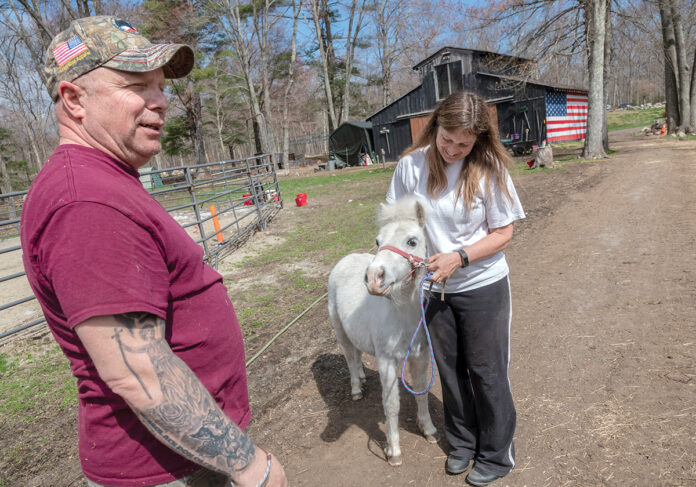WHEN MILITARY PERSONNEL leave the battlefield, the battle does not end for some. Karen Dalton fully understands this.
She grew up in an environment where her father, a former U.S. Marine, struggled with anger management issues. Dalton would later marry a person who had similar struggles, she said, which later caused her to develop fibromyalgia, a physical pain disorder brought on by fatigue and mood issues.
While she was going to school to become a certified health coach, Dalton realized she wanted to do something impactful to bring veterans out of the emotional trauma they endured while serving and afterward. In 2015, not long after she began organizing events to help military veterans in distress, she established Dare to Dream Ranch in Foster, an 11-acre facility that provides veterans a gateway to productivity and comradery with one another.
Dalton recalls meeting one U.S. Navy veteran who said the U.S. Department of Veterans Affairs sent him to school for woodworking and engraving. Those activities, Dalton said, helped him with his suicidal ideations after he left service and the veteran now helps other veterans at the ranch with woodworking.
Dare to Dream Ranch also offers various activities, such as flyfishing; therapy that shows veterans how to raise cows, chickens and rabbits; and also working with horses on a weekly basis.
“Through all the different programs that we offer, they [veterans] find something that helps in their everyday life,” Dalton said. “We get a lot of individuals like that. They’re able to find different ways to help them with their challenges.” The ranch normally assists between 900 and 1,000 veterans annually, Dalton said, but that number dropped to 100 in 2020 due to the COVID-19 pandemic.
The ranch managed to stay sustainable through donations and grants from the community, Dalton said. On April 1, Dare to Dream Ranch raised $80,046 through United Way of Rhode Island’s 401Gives Day campaign, raising more than four times than the previous year’s event.
The ranch also has a partnership with the Center for Dynamic Learning, where inner-city youths are taught building and engineering skills. In return, the youths are turning shipping containers into homes, and the homes are being brought to the ranch for free housing for the veterans.
“This will allow those individuals who are still working … [who] find themselves in this gap of ‘I make too much money and I can’t get help through these other organizations that are supposed to help homeless veterans,’ ” Dalton said. “We’re providing that resource to them to not only get the benefit of the programs, but also to save money and get their own place.”
James Bessette is special projects editor at PBN. Contact him at Bessette@PBN.com.












